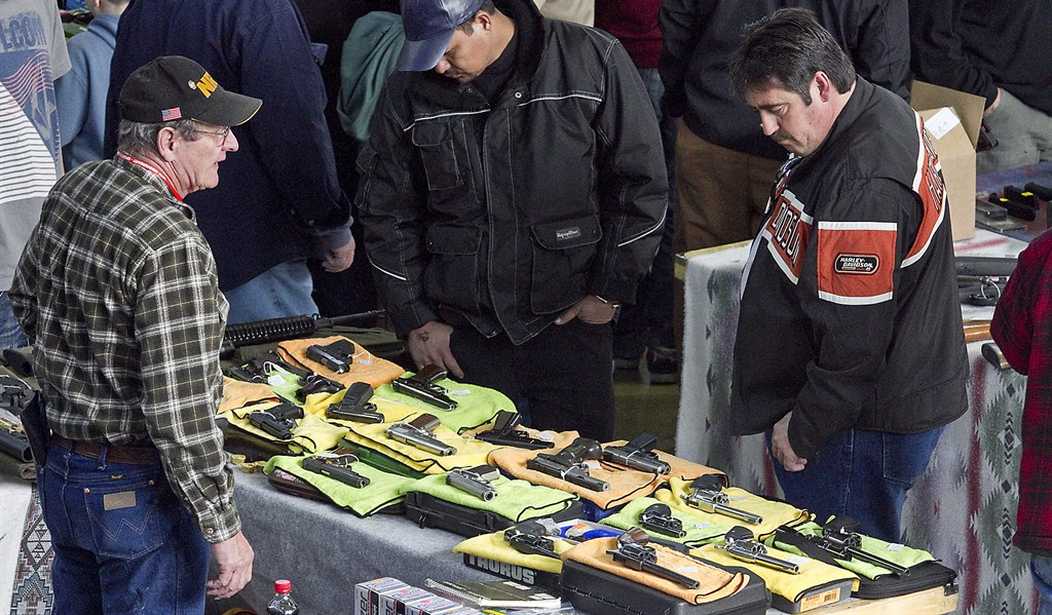AP Photo/Yakima Herald-Republic, TJ Mullinax, File
We hear a lot from the anti-gun crowd about how wrong it is that the Centers for Disease Control and Prevention is barred from conducting gun research. That’s not true, mind you. It’s legally prohibited from conducting anti-gun research, an important distinction. But in anti-gunners’ minds, any research has to be anti-gun.
And, to be fair, that’s often the case.
Take a recent study from Tufts. In particular, an interview with the researchers.
To better understand the source of political paralysis on gun control, Brian Schaffner, the Newhouse Professor of Civic Studies at Tufts, along with University of Massachusetts doctoral student David Barney, took a close look at how mass shootings influence public sentiment toward gun control.
Their study, published recently in the British Journal of Political Science, showed that after each mass shooting, rather than moving toward consensus, public opinion became more polarized, with no net movement toward or away from stricter gun regulations. Democrats were more likely to support greater gun control, while Republicans were inclined to support fewer regulations.
With the shootings and political polarization locked in a repeating cycle, Tufts Now asked Schaffner, who has appointments in both the Department of Political Science and the Tisch College of Civic Life, what he learned from the study, and what strategies those advocating for effective gun laws and public policy need to take to break that cycle.
…
Which groups might gun control advocates target to generate more support for their cause?
One thing that is interesting in the data I’ve looked at is that independents often hold views that are closer to Republicans than to Democrats when it comes to gun control. Since independents should be less tied to following their party on this issue, that might be one place where minds can be changed.
There is also a pretty large gender gap in attitudes toward gun control among Republicans and independents. In fact, in our most recent survey, over half of Republican women support banning assault rifles compared to only about 30 percent of Republican men. Thus, gun control advocates are quite right to be appealing especially to women on this issue.
In other words, this research was conducted at an American university and looks like it was explicitly conducted to advance the anti-gun agenda.
This, ladies and gentlemen, is why the CDC is barred from doing certain kinds of gun research. Tufts can do it because it’s a private university. It can use its money for whatever the hell it wants to use it for.
The CDC, however, isn’t. It’s taxpayer funded. That means it’s funded by people of all political ideologies, including pro-gun. It’s morally abhorrent for anyone to be forced to pay money to fund research which helps infringe on what they believe are sacred and unassailable civil liberties.
When research like this is conducted and treated like unbiased research, it undermines research in general.
Right now, the media are less trusted than at any point in living memory. People don’t trust the news. Why? Because the media lets its biases get into the story. Reporters allow their opinions to color their work. More to the point, they do it and still pretend they aren’t biased.
Now, we have researchers doing the same thing. It’s only a matter of time before that backfires on them too.








Join the conversation as a VIP Member